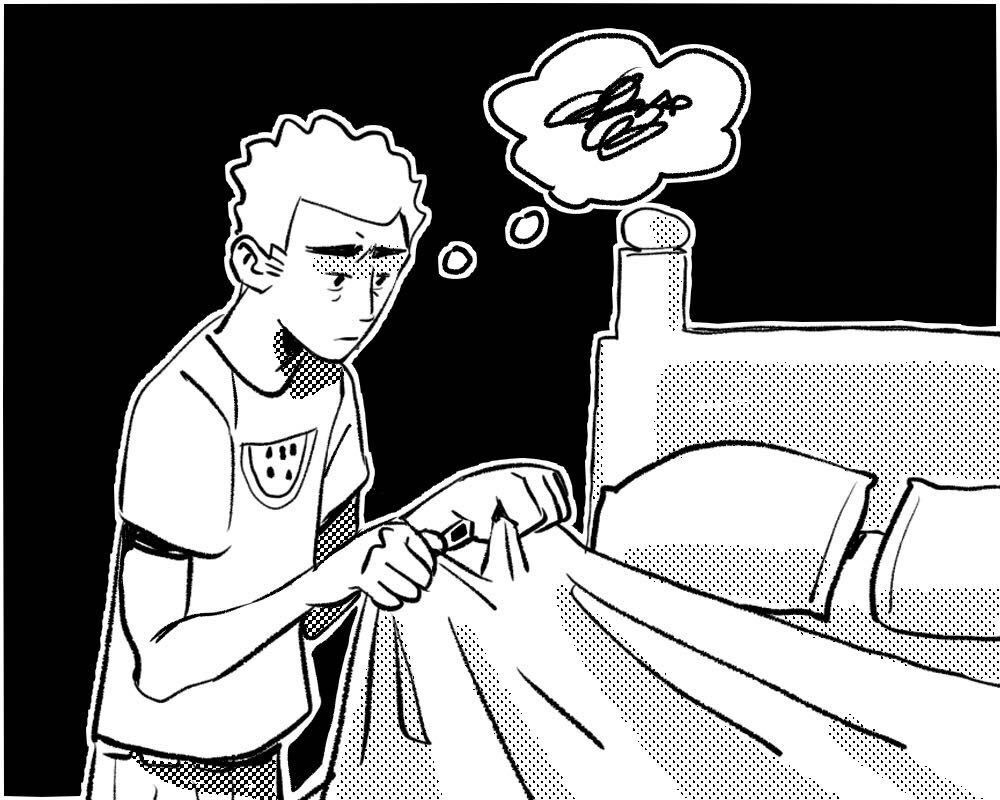I make my bed every morning. I make sure that my homework is done, that I study for my exams and that I stay on top of my tasks. I make sure I have a social life. I engage in conversation and go out with friends. Does this mean that I am OK?
Based on what I stated above, a significant amount of people would not guess that I am an individual who struggles with anxiety and depression. On the surface of these mental illnesses, we often see symptoms like being able to get out of bed, struggling to focus on school, not engaging in your social life, feeling lethargic and so on. While these are all valid and real symptoms, they are not the only form depression can take. It is possible to be struggling with mental illness while managing your responsibilities and sticking to a routine, and that doesn’t make whatever you are dealing with less severe or important.
I have always been one to “power through” when it comes to mental illness. My struggles have never impacted my academic performance or my overall lifestyle because I wouldn’t let them. However, they were very much there and real. There were some days when I wanted to give up or when my anxiety almost became too hard to handle, but I constantly downplayed it because, from the outside, I seemed completely fine. It would be hard to believe I was struggling unless I was the one to admit it, which I have always been reluctant to do.
To someone with high-functioning anxiety or depression, it is almost as if you gaslight yourself that the anxiety is motivating you to not fall back on responsibilities. You convince yourself that the stress is “necessary” and the depression is just an inconvenient addition that others can’t see.
I want to spread awareness of this form of mental illness because it is so hidden. It is hard to get a diagnosis, hard to speak up for yourself and hard to be seen because it is not the typical image of mental illness. For this reason, people struggle alone and in silence for long periods of time before mustering up the courage to seek help, sometimes until they reach a breaking point and they have no other choice.
“High-functioning depression” is not even a medical term — it is a colloquial term that gained popularity after former Miss USA North Carolina attorney Cheslie Kryst died by suicide on Jan. 30, 2022, at the age of 30. The nation was shocked to hear of this successful woman’s suicide because her mental health battles were never apparent. No one suspected that someone like her could have been struggling so severely, and many mental health specialists believe people should stop using the term “high-functioning depression” because it downplays the severity of cases like Chelsie Kryst. It is crucial that we acknowledge that these forms of depression and anxiety exist but in an empathetic way that doesn’t denote it as less of a struggle for the individual going through it. The phrase can be helpful to someone who might be feeling this way, and not recognize it, but its societal connotation could be harmful.
Depression and anxiety symptoms vary from person to person. 32.3% of adults in the United States reported having symptoms of depression and anxiety, and in no way are their experiences universal. Those suffering from high-functioning depression and anxiety often have Type-A personalities, which cause them to be very hardworking and diligent, sometimes having the constant feeling of working against the clock. While there is nothing wrong with this personality, it is commonly associated with high stress levels and a fear of failure. Thus, they fear that if they voice their mental health struggles, they would be falling behind. Just like individuals on the other end of the mental health spectrum, those fighting silently need help as well.
Of course, I am not going to just tell you that this form of depression exists without suggesting how to possibly help a friend, partner or family member who may be struggling in silence. It is extremely important to let them know you are there to listen if they ever need to talk — it can often feel confrontational if you approach them right away with a solution. Instead, just make them aware that you are a safe space. It is also important to take note of what they enjoy and make an effort to get them to participate in those activities. There are numerous resources and organizations online, such as Project Healthy Minds, that offer aid to those in need.
Never downplay what you or someone you care about may be experiencing. Just because you can function and your actions don’t fit perfectly into the textbook definition of depression and anxiety does not mean you are completely fine, and it is OK to seek help. It is never a sign of weakness — only a sign of strength.
If you or someone you know is experiencing suicidal thoughts or a crisis, please reach out immediately to the Suicide Prevention Lifeline at 988.
Grace Harris has a passion for social justice and advocacy. Her email is always open to more ideas — [email protected]




